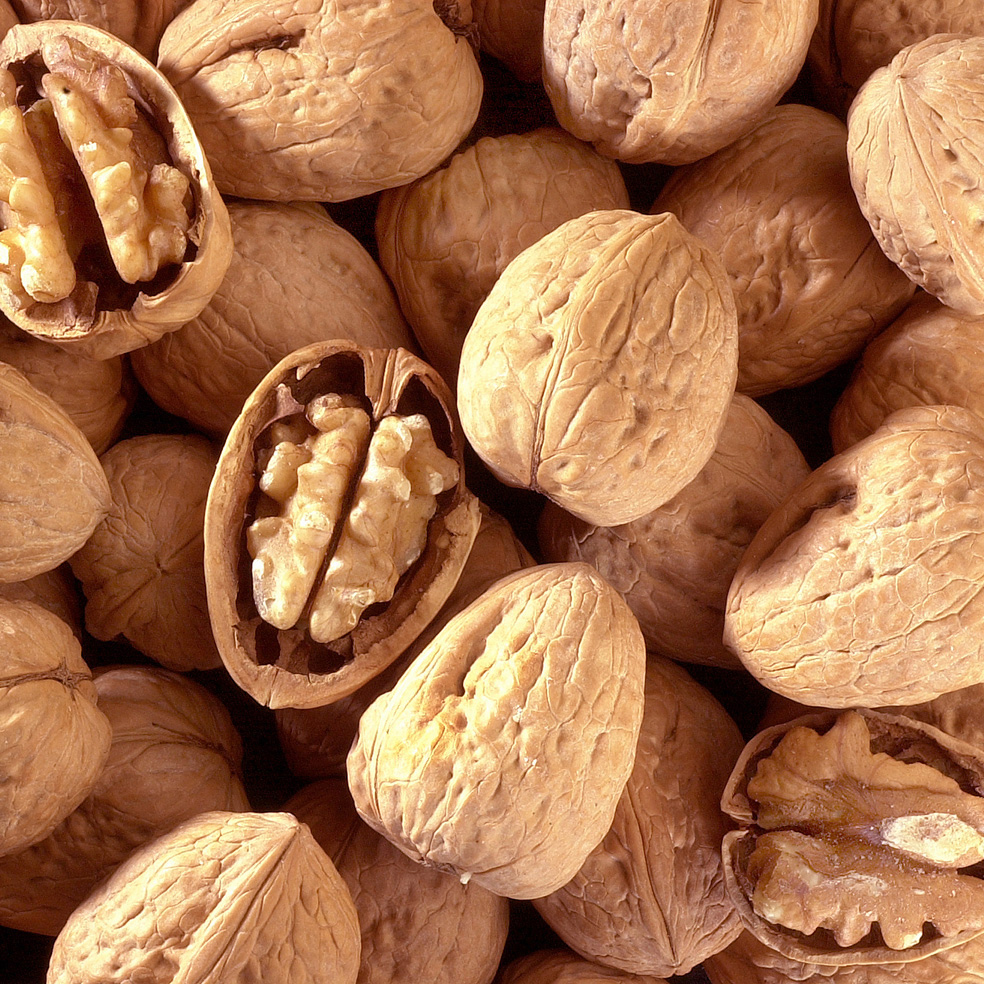
Ahead of my talk on How to Recognise Burnout and Reduce Stress, I have been thinking a lot about the role that food plays in protecting our body from external and internal stressors, and reducing (or promoting) inflammation. This is why this week I want to talk about the importance of eating enough FAT, and how you can add more good fat to your diet by eating this week’s featured seasonal ingredient: WALNUTS.
As the weather cool in Autumn, it is especially important to keep blood sugar level in check by limiting the amount of added and refined sugars in your diet, while making sure to eat more healthy fats. In Body Cycles, I talk extensively about the importance of fats in your diet, and I clarify a few myths about this essential nutrient. We’ve been confused into thinking that fat is not good for our bodies, when in fact, it is necessary for good health. Our bodies need a variety of fats: a small amount of saturated fats, some monounsaturated fats, and especially, polyunsaturated fats. These include the essential fatty acid (EFA) omega-3 and omega-6: fats that we must ingest, because the body requires them for good health, but cannot synthesise them by itself. EFA are converted into a number of important, active molecules called prostaglandins. Some prostaglandins have beneficial effects, including reducing inflammation, inhibiting blood clotting, and maintaining various regulatory states in the body. The strong anti-inflammatory properties help the body recover from injury by reducing pain, swelling and redness.
A handful of walnuts provides more than 100 percent of the daily recommended value of plant-based omega-3 fats! They are really important because they make up the main components of all cellular membranes, protect against viruses and bacteria and play a key role in the construction and maintenance of nerve cells. In fact, research has shown that eating walnuts may support brain health. Walnut are rich in the omega-3 alpha-linolenic acid (ALA), which contribute to this nut’s anti-inflammatory properties and its positive effects on heart health. Moreover, walnuts contain some powerful antioxidants found only in a few foods, which combined with their high omega-3 content and high amounts of copper, manganese, molybdenum, and biotin, make them a veritable inflammation-fighting powerhouse!
For me, the best way to eat walnuts is to simply chop them and add them to my breakfast porridge in the morning, salads at lunch, or scattered over last week’s Green Soup for dinner. I also love to add a small handful of walnut to my smoothies, for a breakfast on the go or a mid-afternoon pick me up. Make sure you eat them with the skin on, where most of the antioxidants in walnuts are found. A tip on storing walnuts: buy them now, when they’re in season, and keep them in an airtight container in the freezer; this will prevent the highly perishable omega-3 fats from being damaged, and you will be able to enjoy this delicious nut all year round.